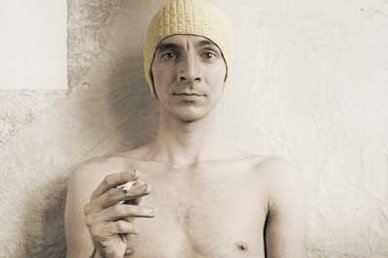A series of happenstances led local artist Bill Whiting to put pen to paper to relive and re-experience years of memories about his late lover and his former life.
Whiting’s “An Early Work Late in Life: The Art and Life of Danny Allen” is a memoir-styled work that traces Whiting’s relationship with artist Danny Allen in the late 1960s and early ’70s in Rochester, N.Y., a time rife with free love and cannabis-smoking.
The story showcases Allen’s art and writing, which gives deeper insight into the complex and talented artist who readers learn from the beginning took his own life in 1974 at the age of 28.
Whiting’s tribute to Allen was rather serendipitous: Nearly 40 years after Allen’s suicide, a friend sent Whiting a forwarded email from an intern at the Rochester Memorial Art Gallery, who had found one of Allen’s paintings in storage. The initial email correspondence led the work, “Sunny Ducks,” to ultimately be featured in a collection of rarely seen gallery pieces — and opened a floodgate of memories for Whiting.
Whiting, who operates a political blog and is also working on publishing a series of short stories, started a blog recollecting his life with Allen, in part based on his own journals and featuring Allen’s own works — which the late artist’s family ultimately suggested he turn into a book.
“Once I got that first email, I started bringing out Dan’s portfolios and slides of his work and started the blog,” he said. “I got Dan’s family and mutual friends involved so people could comment and share their own recollections. So it was part my journals and also a group effort in a way. People would tweak my memory about something and a whole door would open, and a number of things I’d forgotten would come back to me.”
The book tells of all facets of Whiting and Allen’s relationship — playful moments in their apartment, adventures with hippie friends, an eclectic cast of characters involved in their lives — but also the darker issues they dealt with, including Allen’s depression, often evinced through his drawings.
Whiting said he dealt with longstanding issues of guilt after Allen’s suicide, which writing the book helped him to again confront.
“It took a long time for me to see that Dan’s choices were really his own. For many years, I blamed myself for his decision, which in hindsight is a natural one, although it may not be an accurate one,” he said. “But I’ve forgiven myself to a large degree. I learned through this process that people admired me more than I thought, which helped.”
Since the book’s publication, Whiting said friends of Allen have continued to contact him with stories and works of Allen, some of which he hopes to include in future reprints.
Although Allen lived a short life, Whiting said he saw through the writing of the book that his impact has been lifelong.
“I realized how much I loved Danny and still do to this day. I will always miss him and, until this writing came along, I spent a lot of years trying to push him down into a place in my heart and memory where he wasn’t omnipresent. But that didn’t work. He is always going to be on my mind and in my heart, and doing this allowed me to say that that’s OK. He is the love of my life, and I can embrace that and not try to run away from it; I needed to just let that be a part of me and now it is.”
Bill Whiting will read from “An Early Work Late in Life” at 5:30 p.m. June 1 at Giovanni’s Room, 345 S. 12th St.

